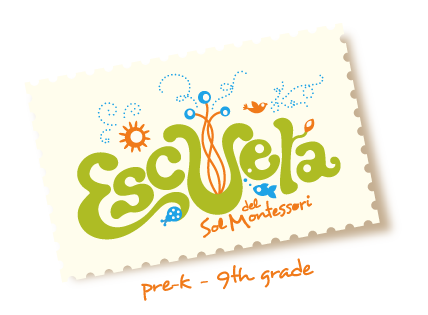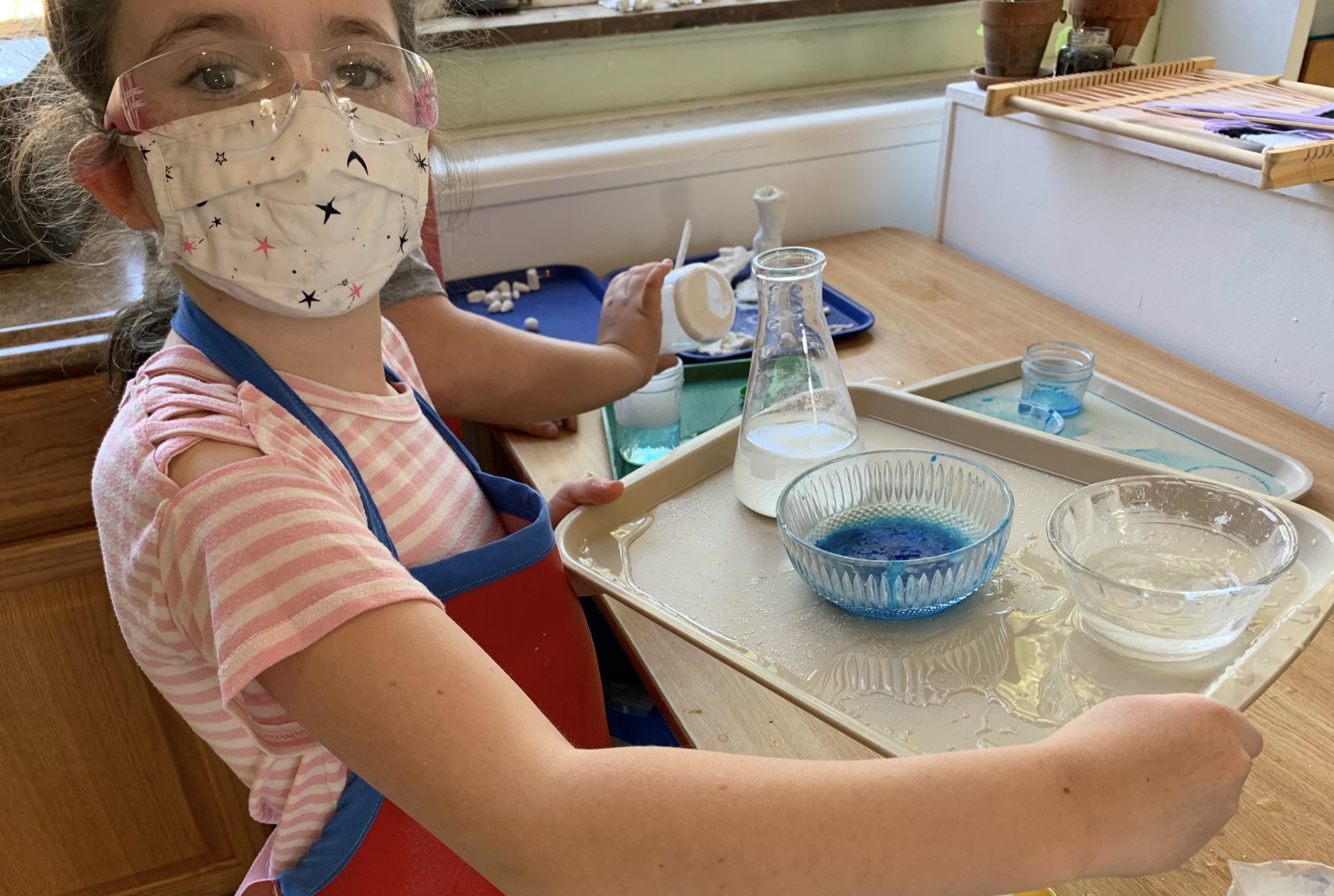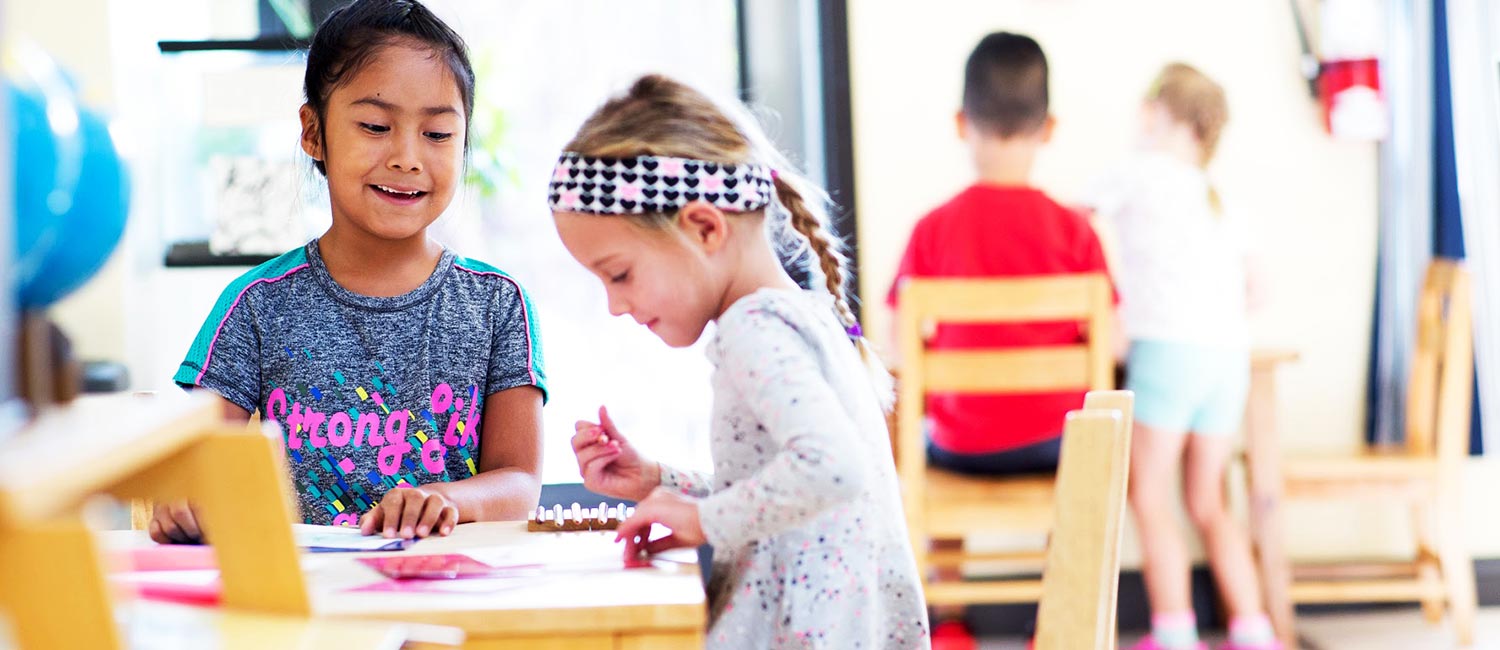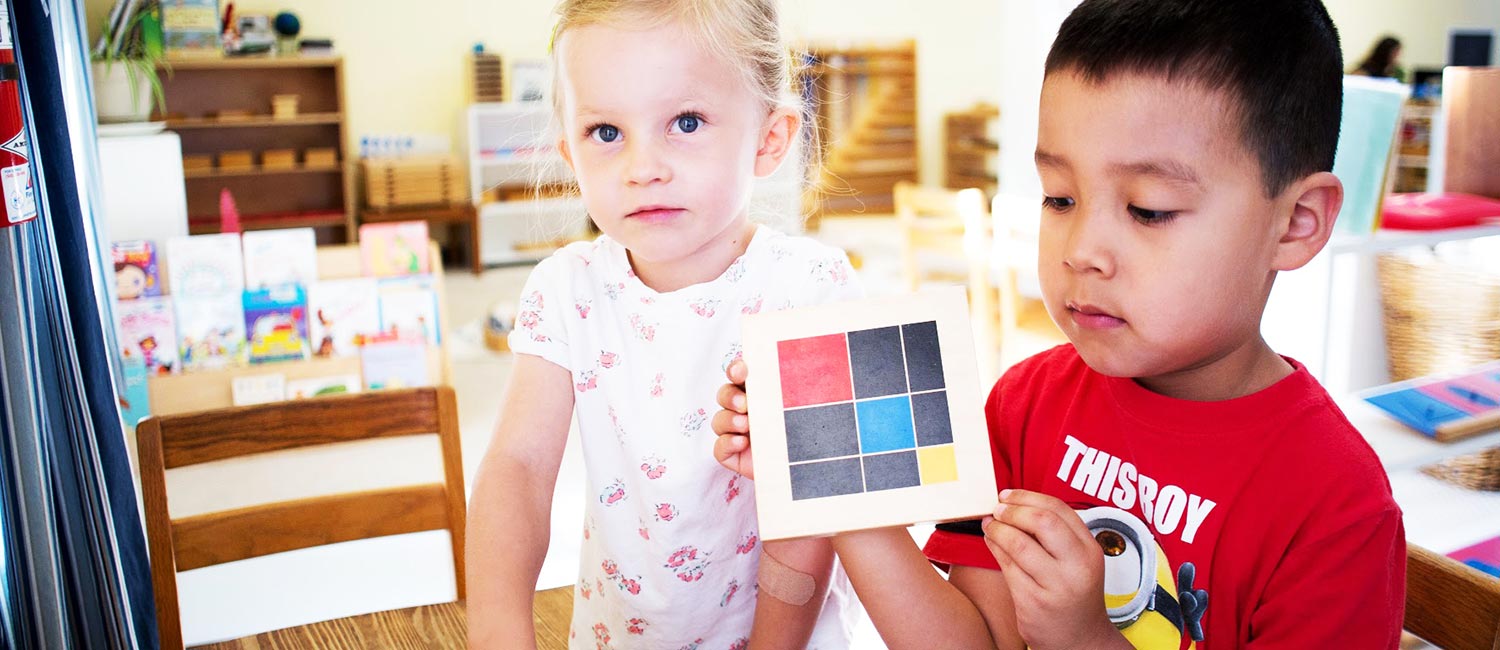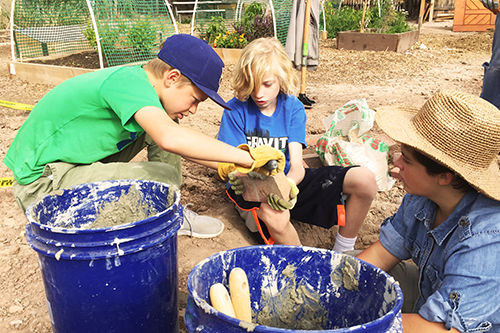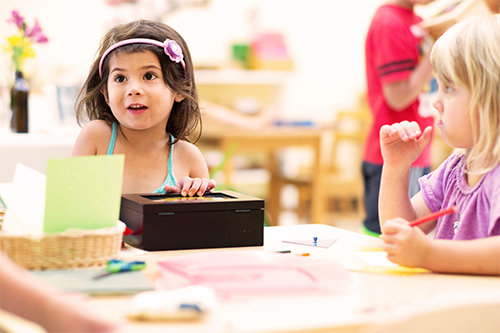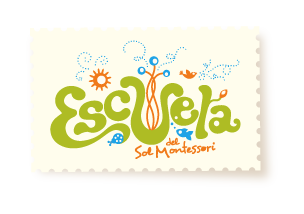Learn to live,
live to learn.

Montessori Elementary
grades 1 – 6
Throughout the Escuela del Sol Montessori Elementary, academic, social and personal skills are integrated into an interdisciplinary program to nurture creativity and enthusiasm for learning while fostering critical thinking and social responsibility. Learning in an environment of kindness, courtesy, respect, and consideration for others is crucial to moral development, a sense of dignity, and academic success.
The Classroom and Curriculum
Escuela’s Elementary program harnesses the developmental hunger for information by throwing open the doors to the whole of human knowledge: the history of ancient civilizations, the mechanics of language, biological and geological classification, the intricacies of physical and political geography, the methods of mathematics from basic operations through cube roots and basic algebra.
During the elementary years children are in a sensitive period for moral reasoning. This is a crucial time to integrate character development, mediation and conflict resolution skills. Each Elementary class holds regular meetings, not only as opportunities to share work and research but also as a chance to work out social problems in a fair and reasonable fashion. Teachers act as moderators and facilitators, helping students learn how to negotiate solutions that respect everyone’s thoughts and feelings to maintain a smoothly functioning classroom community – and develop real-world skills of compromise and diplomacy that will serve them well for years to come.
Classrooms are designed to support group and individual learning, and are equipped with a rich array of materials that stimulate intellectual curiosity and passion.
Escuela Shine
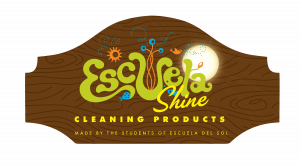
Escuela Shine cleaning products are a Senior Elementary fundraiser.
Montessori Elementary vs. Conventional Elementary
- Emphasis on guided choice and student initiative
- Teacher assists and supports, often through posing problems and questions
- Learning materials are self-correcting allowing a great deal of independent work that builds toward self-assessment
- Learning materials are hands-on and multi-sensory
- Student can go as far as capable, moving at their pace
- Emphasis on self-awareness and self-direction
- Emphasis on compliance
- Teacher gives information and directives
- Learning is corrected by teacher
- Learning materials often limited to paper and pencil
- Student stays at pace with class
- Emphasis on meeting standards and benchmarks
Language Development
For all children, language is a key component of their growth and future success. This is especially true during their Elementary years, when they begin to grasp some of the complex ideas that surround language and how it can be used. During the elementary years, language development is like a fireworks display: colorful, varied, and firing rapidly, sometimes spiraling off in every direction. Montessori Elementary students write reports, stories, plays, comic strips, poetry, essays, persuasive letters…the opportunities are endless! Montessori grammar materials provide tools for independent exploration and a deep understanding of the function of words and formation of sentences and paragraphs.
Play, exploration, and proficiency with the rules and tools of language allows Montessori students to bend language to their will. The results are joyous, profound, empowering, and informative. During the capstone year of Elementary, skills and self-awareness culminate in a thesis project that spans much of the students’ 6th year. Read more…
Recent Studies
Two recent studies addressed the academic abilities of Montessori children compared with traditionally educated peers. The first study, conducted by academic psychologists Angeline Lillard (University of Virginia) and Nicole Else-Quest (University of Wisconsin) and published in Science Magazine (Sept. 2006), found that Montessori children at age five scored significantly higher on measurements of math, reading and executive functions. Young Montessori children were also more advanced in moral development, demonstrating a greater understanding of justice and fairness. At age 12, Montessori children exhibited greater creativity and use of more complex language skills, responded more positively to social dilemmas and felt a greater sense of community at their school.
A second study published in The American Journal of Education (May 2005) (Rathunde and Csikszentmihalyi) tested the motivation and quality of experience of Montessori and traditional school children of middle school age. Montessori children reported feeling greater energy, passion, motivation and interest in academic activities at school than did their peers at traditional middle schools.

